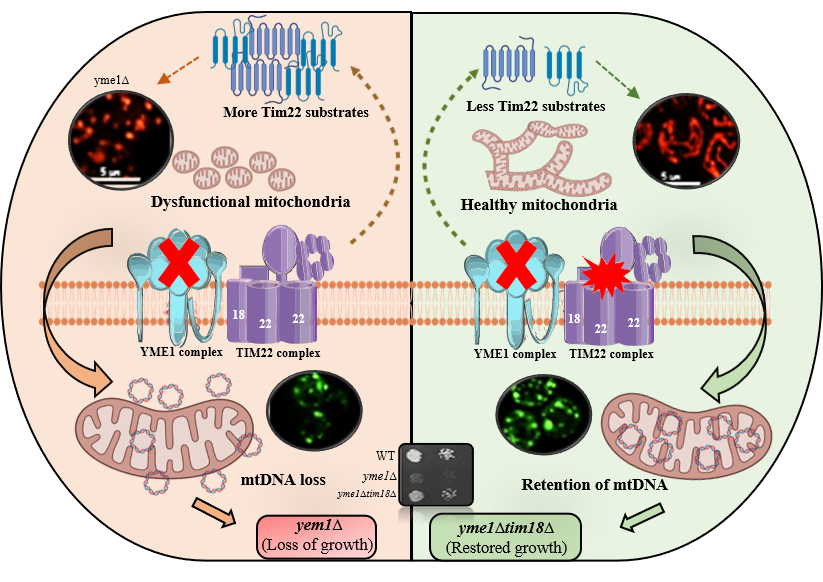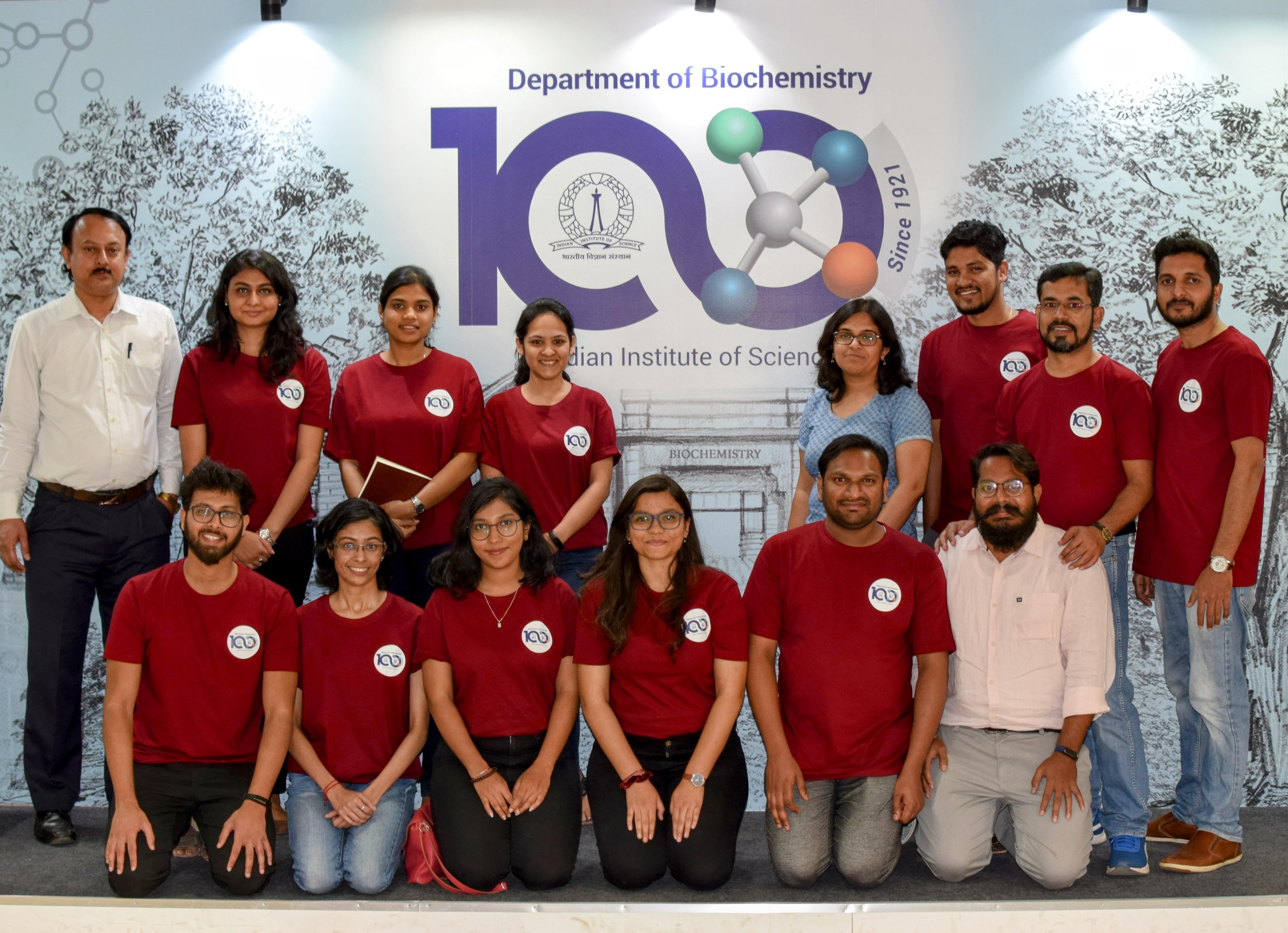Decoding the molecular crosstalk behind the mitochondrial function
– Harsha PM

Mitochondria are essential organelles and the ‘power plants’ of the cell. These tiny biological ‘machines’ convert oxygen and nutrients into energy through a process called cellular respiration. The proper functioning of mitochondria requires hundreds of proteins synthesised in the cytoplasm – the fluid found inside a cell – and transported into the mitochondria. Mitochondrial dysfunction brings about an ‘energy crisis’ and probable cell death in high energy-consuming tissues such as the brain, heart, and skeletal muscle. Maintaining a balance in both the quality and quantity of these proteins is crucial to ensure proper mitochondrial function, thus preventing pathophysiology associated with mitochondrial diseases. Patrick D’Silva, Professor at the Department of Biochemistry, and his team are working to understand the fundamental aspects of the processes involved in mitochondrial protein production, transport, and degradation using yeast as a model, which is necessary to uncover the proper functioning of mitochondria in all higher organisms.
Each mitochondrion is enclosed by an inner and an outer membrane. Complex hydrophobic proteins that need to localise in the inner membrane enter the mitochondria through a protein channel called the TIM22 complex. A protein-degrading enzyme called Yme1 closely checks the number of proteins transported through the channel. If the gene coding for Yme1 is deleted, mitochondrial proteins accumulate in an unregulated manner within the cytoplasm, causing impairment in mitochondrial health and leading to overall growth defects.
Abhishek Kumar and Tejashree Pradip Waingankar, PhD students from D’Silva’s group, have recently demonstrated that the growth defects seen in cells when Yme1 is lost can be partially reversed by disabling a part of the TIM22 complex, restoring the cellular respiration, integrity, and its genome, and therefore overall mitochondrial function. The finding indicates that the interaction between the enzyme and the protein channel is crucial for proper mitochondrial function.
Mitochondrial dysfunction contributes to many neurological and muscular diseases and disorders associated with aging. The authors believe that such studies could aid in understanding the development of these diseases in higher-order organisms.

REFERENCE:
Kumar A, Waingankar TP, D’Silva P, Functional crosstalk between the TIM22 complex and YME1 machinery maintains mitochondrial proteostasis and integrity, Journal of Cell Science (2023).
LAB WEBSITE:
http://pdslab.biochem.iisc.ernet.in/





